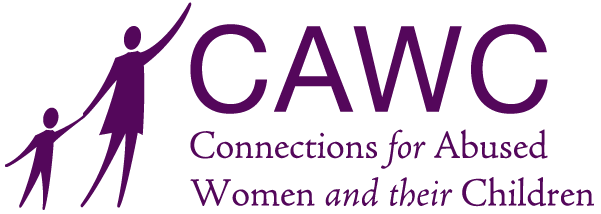By Colleen Montgomery, LCSW, CCTP
Outreach Services Coordinator
CAWC’s Hospital Crisis Intervention Project (HCIP) provides supports and services to domestic violence survivors when they are seeking medical intervention by maintaining onsite Counselor Advocates to respond to patients when they are still in the hospital. Read below to learn more about the history and current status of HCIP!
1. Started in 1992 at Stroger Hospital
HCIP started as a response to the need for collaboration between healthcare professionals and domestic violence advocates. The project was one of the first on-site, medical-based domestic violence programs in the county, becoming a model for other organizations and hospitals to partner together.
Due to the success of the program at Stroger, we expanded to Northwestern Memorial in 2014 to provide the same level
2. Four full-time Counselor Advocates
Stroger and Northwestern each have 2 in-house CAWC Counselor Advocates to provide HCIP services.
3. Counselor Advocates respond bedside to domestic violence survivors
Counselor Advocates travel around the hospital systems to meet survivors where they are being treated. Most survivors request ongoing support services and are assigned to a Counselor Advocate. Some survivors are not ready or in a place to receive ongoing support services, so Counselor Advocates provide referrals and resources they might be seeking at that time.
4. We offer case management & counseling services to support survivors in reaching their goals
Fleeing an abuser is not always the goal of a survivor, and our Counselor Advocates are trained to meet survivors where they are by supporting their right to self-determination. Through case management and counseling, (in-person or by telehealth) we offer:
- Crisis intervention
- Safety planning
- Medical Advocacy
- Domestic violence education
- Referrals to internal and external support programs
5. HCIP provides ongoing outreach and training services for healthcare professionals
To increase awareness of and intervention for domestic violence survivors, our HCIP team regularly provides in-person or virtual trainings for healthcare professionals within their respective hospital systems. Trainings include information on how to assess for domestic violence with a patient and how to successfully connect them with the HCIP team.
6. Connecting with other domestic violence and healthcare professionals
The HCIP team also works diligently to improve the response of healthcare systems to domestic violence survivors by participating in cross-collaborative workgroups, initiatives, and taskforces.
7.Self-care for staff members is crucial
Like all CAWC staff, our HCIP team prioritizes taking care of themselves so they can continue providing top quality services to domestic violence survivors. This includes:
- Acknowledging secondary trauma and processing challenging situations with trusted peers and supervisors
- Taking time off
- Engaging in continuing education workshops, webinars, and courses
- Receiving weekly 1:1 supervision as well as monthly team meetings with fellow outreach colleagues
8. Outcomes from the HCIP program are tangible
- In FY19: 98% of patients reported learning safety planning skills and strategies to keep themselves safe during future incidents of violence.
- In FY19: 86% of healthcare providers who received training through the project reported an increased comfort level with routine IPV screening of their patients.
9. Our Executive Director started out in HCIP!
Stephanie Love-Patterson, our Executive Director, has been with CAWC since 1999 and is a certified domestic violence professional. Stephanie was initially hired at CAWC as the HCIP Coordinator where she provided support to clients and staff at what was then called Cook County Hospital. By the time Cook County Hospital became Stroger Hospital, Stephanie had been promoted to her next role as the HCIP Director. Her leadership has helped build HCIP into the massive success that it is today!
10. It is easy to support our HCIP program!
Want to do more to help support our HCIP team? It is super easy! Share the information you have learned from this post with your friends, family, and networks, and click on the links below for more opportunities!
- Join us for our Sounds of Silence Virtual Gala on Friday, August 13th, 2021 at 7pm
- Start or continue a monthly donation to CAWC
- Purchase and ship us much needed items for survivors from our Amazon Wishlist
- Volunteer with our incredible volunteers and staff members to support our survivors in-person
